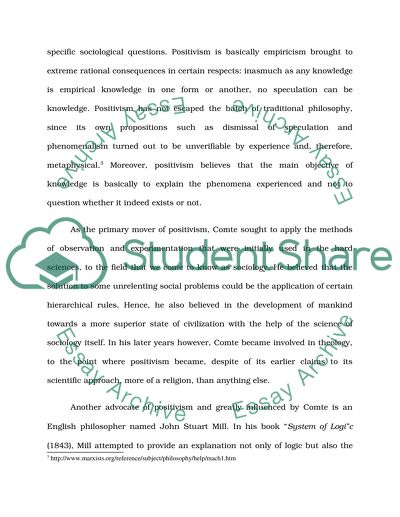Cite this document
(“Positivism and Social Constructionism Essay Example | Topics and Well Written Essays - 2000 words”, n.d.)
Positivism and Social Constructionism Essay Example | Topics and Well Written Essays - 2000 words. Retrieved from https://studentshare.org/sociology/1502195-positivism-and-social-constructionism
Positivism and Social Constructionism Essay Example | Topics and Well Written Essays - 2000 words. Retrieved from https://studentshare.org/sociology/1502195-positivism-and-social-constructionism
(Positivism and Social Constructionism Essay Example | Topics and Well Written Essays - 2000 Words)
Positivism and Social Constructionism Essay Example | Topics and Well Written Essays - 2000 Words. https://studentshare.org/sociology/1502195-positivism-and-social-constructionism.
Positivism and Social Constructionism Essay Example | Topics and Well Written Essays - 2000 Words. https://studentshare.org/sociology/1502195-positivism-and-social-constructionism.
“Positivism and Social Constructionism Essay Example | Topics and Well Written Essays - 2000 Words”, n.d. https://studentshare.org/sociology/1502195-positivism-and-social-constructionism.


